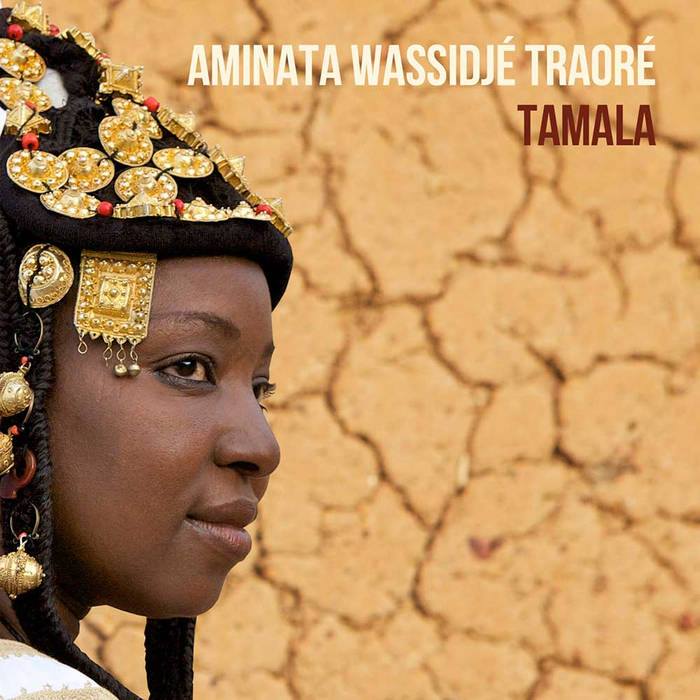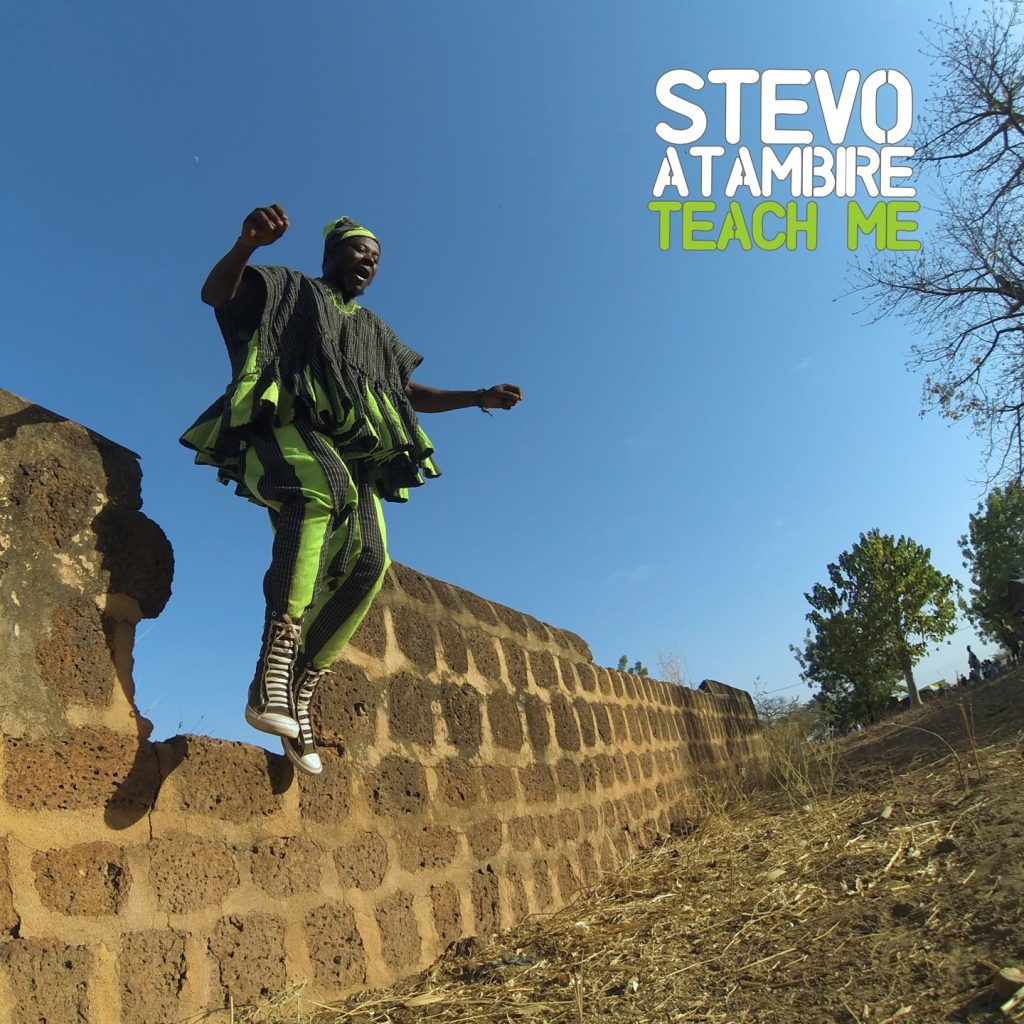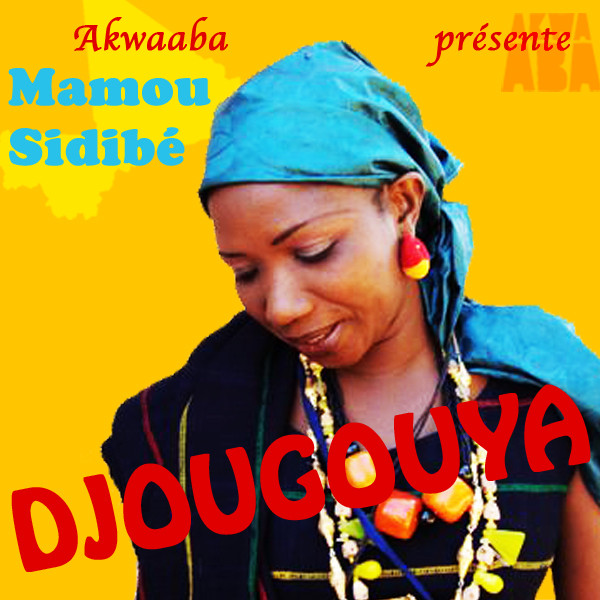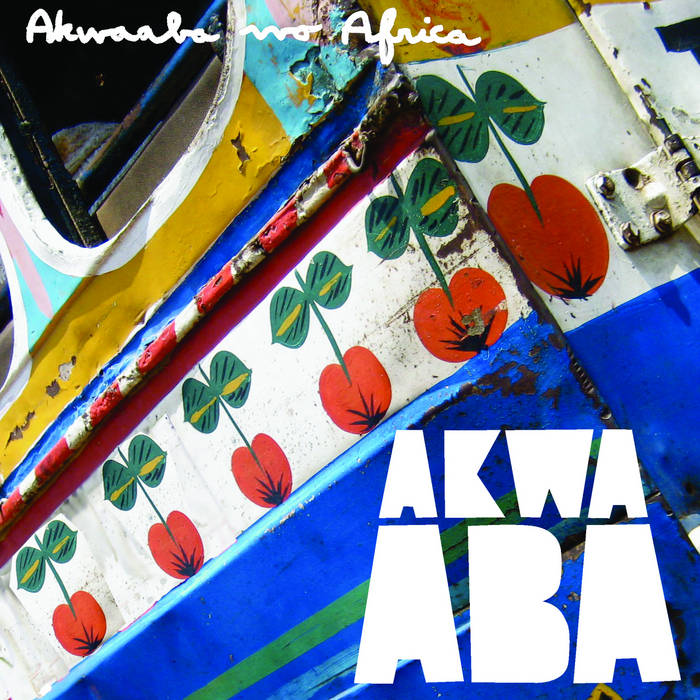Aminata Wassidjé Traoré – Tamala
Aminata Wassidjé Traoré is a rising voice in Mali. Tamala is her debut album, recorded in Bamako between 2000 and 2008. Born in Diré, near the fabled city of Timbuktu, Ami was raised within northern Mali’s rich cultural brew. From an Ethnic Songhai family, Ami started singing as a young child. Her music, like the environment that surrounded her growing up in Diré, near Timbuktu, incorporates various cultures and traditions. On Tamala, an album she self produced with the help of artist Mamadou Kelly and arranger Baba Simaga, she sings in Songhai and Tamasheq.
While northern Mali still suffers the repercussions of religious and ethnic warfare, Tamala sends a message of reconciliation and inclusion. Ami believes people can work together for a solution, she sees the vast potential of Mali’s diverse north. Moving to the Southern capital of Bamako not only enabled her to develop as a musician, backing up well known artists like Baba Salah, Khaira Arby and Afel Bocoum, it also enhanced her vision of a diverse and connected Mali.
Tamala is considered a modern-traditional album in Mali: it is rooted in northern folk musical traditions, but arranged in a contemporary way. it was conceived locally, for a Malian audience, and shines in its subtle simplicity. This album is also the first collaboration between Paul Chandler’s Studio Mali and Akwaaba Music.
Paul set up Studio Mali as a label and artist management company, and has worked with legendary musicians such as Afel Bocoum, Vieux Farka Touré, Baba Salah, Andra Kouyaté, Samba Touré and most recently on Mamadou Kelly’s album Adibar. Paul also founded i4africa.org, an NGO whose goal is to preserve traditional music, and provide training in the arts to underprivileged and at-risk youth in Mali.
A few words about the songs:
Tamala: The history of the Maiga and Toure families, and how they solved their conflicts to live in peace. It tells the story of how the two families developed their “cousinage,” or how they became cousins.
Afrique: This is a song calling for unity among Africans, to work together not against each other, for Peace and progress.
Un Jour: About a couple who are in love, but the young woman’s parents don’t want them to be together. The young man has lots of questions and worries, and the young women assures him that one day it will all work out and they will be together.
Tamasheq: In Diré we have everything. There are many different ethnic groups in Dire. There are great things in Dire, great teachers, healers and wonderful families. Young people need to realize this and stay there.
Alfouleila: Always be straightforward with people. If you are honest and upfront, you will have everything you need. Everything comes in it’s time, to people who are good and faithful.
Senkou: Sabotage. Making fun of someone who has less is wrong, remember, it is God who gives and it is God who takes it away.
Takamba: The North needs so many things. The people who are causing problems are from the North. Why are they causing problems wrecking their country. There are no roads. The north is underdeveloped. The north needs everything, everything that was started has been stopped.
Do Fa Fa: This is a song about having a strong family and the relationships between brothers and sisters. Family members should always be there for each other. Brothers and Sisters should always help solve each others’ problems.
Aminata Wassidjé Traoré – Tamala

Aminata Wassidjé Traoré is a rising voice in Mali. Tamala is her debut album, recorded in Bamako between 2000 and 2008. Born in Diré, near the fabled city of Timbuktu, Ami was raised within northern Mali’s rich cultural brew. From an Ethnic Songhai family, Ami started singing as a young child. Her music, like the environment that surrounded her growing up in Diré, near Timbuktu, incorporates various cultures and traditions. On Tamala, an album she self produced with the help of artist Mamadou Kelly and arranger Baba Simaga, she sings in Songhai and Tamasheq.
While northern Mali still suffers the repercussions of religious and ethnic warfare, Tamala sends a message of reconciliation and inclusion. Ami believes people can work together for a solution, she sees the vast potential of Mali’s diverse north. Moving to the Southern capital of Bamako not only enabled her to develop as a musician, backing up well known artists like Baba Salah, Khaira Arby and Afel Bocoum, it also enhanced her vision of a diverse and connected Mali.
Tamala is considered a modern-traditional album in Mali: it is rooted in northern folk musical traditions, but arranged in a contemporary way. it was conceived locally, for a Malian audience, and shines in its subtle simplicity. This album is also the first collaboration between Paul Chandler’s Studio Mali and Akwaaba Music.
Paul set up Studio Mali as a label and artist management company, and has worked with legendary musicians such as Afel Bocoum, Vieux Farka Touré, Baba Salah, Andra Kouyaté, Samba Touré and most recently on Mamadou Kelly’s album Adibar. Paul also founded i4africa.org, an NGO whose goal is to preserve traditional music, and provide training in the arts to underprivileged and at-risk youth in Mali.
A few words about the songs:
Tamala: The history of the Maiga and Toure families, and how they solved their conflicts to live in peace. It tells the story of how the two families developed their “cousinage,” or how they became cousins.
Afrique: This is a song calling for unity among Africans, to work together not against each other, for Peace and progress.
Un Jour: About a couple who are in love, but the young woman’s parents don’t want them to be together. The young man has lots of questions and worries, and the young women assures him that one day it will all work out and they will be together.
Tamasheq: In Diré we have everything. There are many different ethnic groups in Dire. There are great things in Dire, great teachers, healers and wonderful families. Young people need to realize this and stay there.
Alfouleila: Always be straightforward with people. If you are honest and upfront, you will have everything you need. Everything comes in it’s time, to people who are good and faithful.
Senkou: Sabotage. Making fun of someone who has less is wrong, remember, it is God who gives and it is God who takes it away.
Takamba: The North needs so many things. The people who are causing problems are from the North. Why are they causing problems wrecking their country. There are no roads. The north is underdeveloped. The north needs everything, everything that was started has been stopped.
Do Fa Fa: This is a song about having a strong family and the relationships between brothers and sisters. Family members should always be there for each other. Brothers and Sisters should always help solve each others’ problems.












